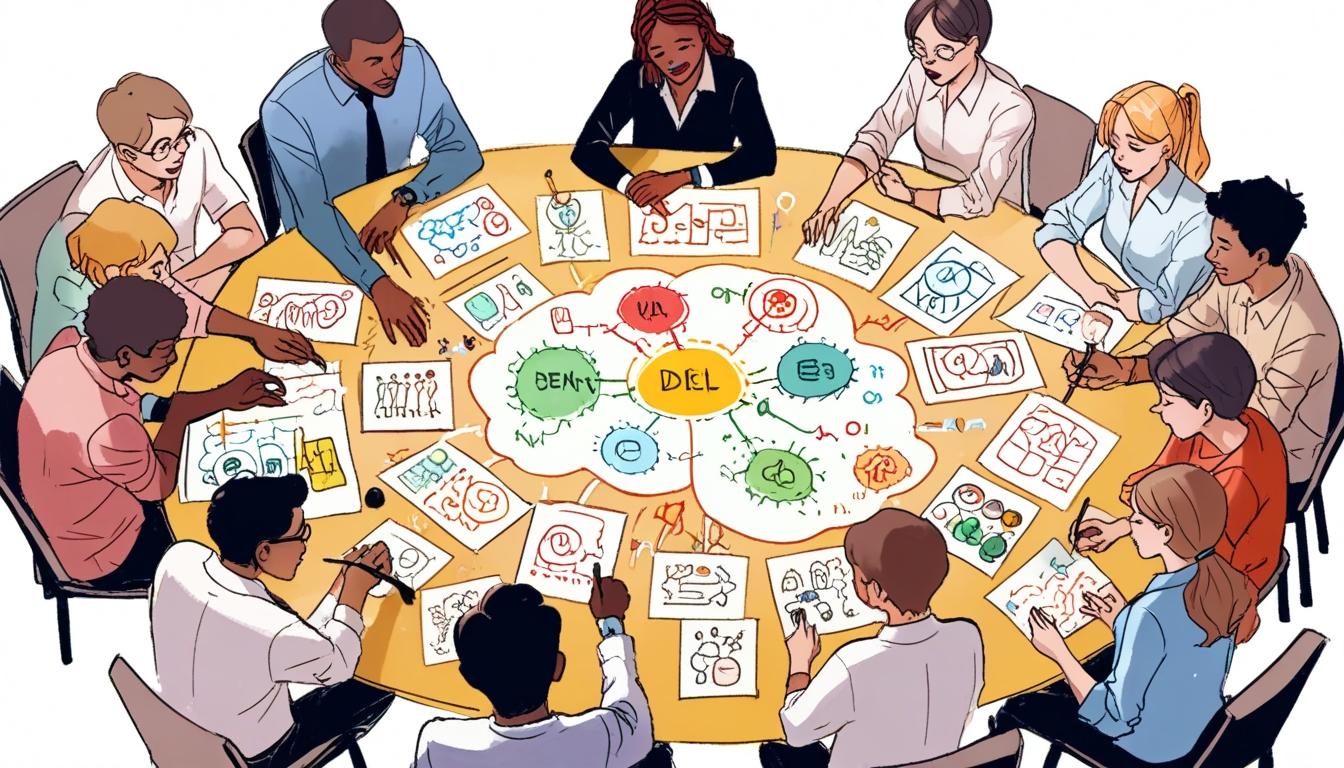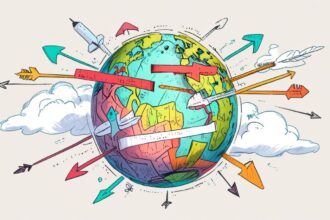While diversity, equity, and inclusion initiatives are increasingly visible in Indian companies, experts highlight the need to move beyond tokenism and informal efforts towards leadership accountability, transparent policies, and genuine career progression for marginalised groups.
As diversity, equity, and inclusion (DEI) initiatives gain prominence within corporate India, questions are emerging regarding their depth, execution, and lasting impact. The discourse reveals notable contrasts between India and Europe in the approach to embedding DEI within organisational structures and leadership priorities.
Abhishek Ghosh, co-founder of Qonnect—a networking platform for LGBTQIA professionals—described India’s DEI scene as comparable to “a teenager seeking attention,” while characterising Europe as someone “in midlife who no longer feels the need to prove anything.” He emphasised that, in Europe, DEI efforts are more deeply integrated into corporate strategies, with leadership held accountable through mechanisms such as Objectives and Key Results (OKRs) linked to wider business goals. However, he also noted the fragility of such targets: “If it’s not tied to revenue, it gets deprioritized. In fact, we dropped that OKR this year.”
In contrast, Ghosh pointed out that Indian companies often treat DEI as a largely informal concern. Recalling his observations from fast-growing technology firms, including one recently listed on the stock market, he said, “It was entirely dependent on whether an individual HR manager cared. There was no dedicated budget—so one day you had money, the next you didn’t.” This inconsistency exemplifies a common pattern where public displays of support for diversity, such as during Pride Month or International Women’s Day, give the appearance of commitment, yet deeper structural reforms on power distribution, pay equality, and career advancement for marginalised groups remain limited.
The financial landscape for DEI professionals in India presents a mixed picture. Official data from TeamLease Digital indicates that Diversity and Inclusion Managers typically earn between ₹18 lakh and ₹35 lakh annually, with Chief Diversity Officers commanding over ₹50 lakh. Nonetheless, insiders report that these roles can be marginalised within startups. Ashish Pandya, heading customer success at a Mumbai-based genomics startup, commented on hiring tendencies: “Companies are new to hiring queer talent and want to play it safe. They hire at junior levels so the individual can adjust to the culture.” He highlighted the rarity of senior leadership roles for openly queer professionals, often due to concerns about maintaining workplace dynamics, thereby perpetuating systemic bias that excludes talented candidates from influential positions.
Beyond salary challenges, DEI practitioners and marginalised employees frequently shoulder significant emotional labour, a form of effort rarely recognised or compensated in India. Anupama Easwaran, founder of the DEI consultancy inHarmony, which focuses on transgender and caste-oppressed communities, remarked, “The conversation around compensating emotional labour has not even begun in India.” While gender pay equity has gained some corporate attention, inclusion efforts spanning LGBTQIA+ individuals, persons with disabilities, and caste minorities remain in early stages. Entry-level hiring without clear paths for career progression is common.
Despite these challenges, the DEI sector is expanding. LinkedIn data revealed a 168.9 percent global rise in Chief Diversity and Inclusion Officer appointments between 2019 and 2022—a trend reflected in Indian multinational corporations and large firms located primarily in Bengaluru and Mumbai. Sectors such as IT, consulting, and consumer goods have embraced DEI roles more rapidly, according to staffing firm Adecco India, while traditional industries and manufacturing lag behind.
Employment platform Foundit reported a 69 percent increase in diversity hiring within India over the past two years and noted a growing prevalence of remote and hybrid DEI roles projected into 2024 and 2025. Anupama Bhimrajka, Foundit’s Vice President of Marketing, observed, “What’s particularly promising is the shift from mere compliance to culture-building. As organisations grow, inclusion is becoming an integral part of the strategic agenda.”
Nevertheless, key systemic issues remain. TeamLease Digital’s data shows starting salaries for DEI-aligned roles at ₹4.7 lakh, rising to ₹45 lakh for leaders. Yet insiders caution that without comprehensive policy frameworks, these roles may serve more symbolic functions than drive structural change. Neeti Sharma, CEO of TeamLease Digital, noted, “While including women is becoming more common, inclusion of different castes and people with disabilities still needs stronger support.”
Furthermore, retention and promotion of marginalised professionals present ongoing challenges. Ghosh warned that hiring without adequate structural support could backfire: “It forces people to out themselves before they’re ready and creates resentment when promises aren’t met.” Easwaran advocated for sustained investment in internship programmes and leadership mentorships as effective pathways to nurture diverse talent, stating, “Training programmes over six months to a year are much more effective than targeting hires for hyper-specific roles.”
Tokenism also persists. Easwaran remarked, “Some companies genuinely build inclusion into their culture. But for others, it’s still a box-ticking exercise, a lunch, a campaign, a one-off event.” Still, she acknowledged the value of incremental gains: “If someone attends a Pride event or bias training once, that awareness can ripple out into homes and communities.”
A recurring theme among experts is the need for transparency concerning compensation and career advancement. Pandya urged companies to “publish internal pay equity audits” as a method to expose superficial commitments often referred to as ‘pinkwashing’ and to drive substantive reforms.
Ghosh encapsulated the contrast and challenge succinctly, stating, “DEI in India is often loud and performative. In Europe, it’s quieter but systemic. The real question isn’t whether you hired someone; it’s whether you changed the system to help them lead.”
The evolving landscape of DEI in India suggests growing recognition among businesses that fostering inclusive cultures is becoming integral to strategic success. Yet the translation of public affirmations into systemic transformation, particularly through sustained leadership accountability, structural policy frameworks, transparent practices, and genuine career development opportunities for marginalised employees, remains an ongoing endeavour.
Source: Noah Wire Services
- https://timesofindia.indiatimes.com/blogs/the-inclusion-platform/why-india-needs-its-own-dei-model-lessons-from-global-practices/ – This article discusses the distinct challenges India faces in implementing DEI initiatives compared to Western models, highlighting the need for indigenous frameworks due to unique social realities such as caste, regional diversity, and disability inclusion—corroborating the article’s point on India’s DEI challenges and informal treatment of DEI concerns.
- https://www.ey.com/en_ro/newsroom/2024/04/-ey-european-dei-index-companies-in-europe-are-still-behind – The EY European DEI Index provides insight into European companies’ more systemic and accountable DEI efforts, with details on how leadership is held responsible and the depth of DEI integration—supporting the comparison between Europe’s structured DEI approach and India’s evolving scene.
- https://www.talenteverywhere.org/Mobility-News/Article/a-closer-look-at-dei-efforts-around-the-world – This resource offers a global perspective on DEI adoption and varying regional maturity levels, confirming that DEI is more deeply embedded in some regions, including Europe, than others, consistent with the article’s claim about Europe’s midlife maturity in DEI versus India’s nascent stage.
- https://economictimes.indiatimes.com/jobs/diversity-inclusion-managers-earn-between-rs-18-lakh-35-lakh-annually-teamlease-digital/articleshow/94747713.cms – This article from Economic Times citing TeamLease Digital data confirms salary ranges for Diversity and Inclusion managers and Chief Diversity Officers in India, directly backing the salary figures and role marginalization points made.
- https://www.linkedin.com/pulse/global-rise-chief-diversity-inclusion-officer-roles-linkedin-data-2023/ – LinkedIn’s data shows a significant global increase in Chief Diversity and Inclusion Officer appointments since 2019, including in Indian multinational companies, supporting the statement about DEI role growth in India and sectors leading adoption.
- https://www.foundit.in/blog/diversity-hiring-trends-in-india-2024/ – Foundit’s report details the 69% increase in diversity hiring in India, the rise of remote/hybrid DEI roles, and the strategic shift toward culture-building versus mere compliance, as highlighted by the article through Foundit’s Vice President of Marketing.
- https://news.google.com/rss/articles/CBMixwFBVV95cUxNbVJrVU5ZZ3lkRFg2SjdfdVBuMEpzLVJVYkRHZVZyWGw2R3hfaVppZ0phUUdKUFFVSU1sZkxydlNTeUxfVWNhQVRHY01lTFFiNGk1dmgwUlp4NF9qTXdsa3BWRnBXNjFPU0tPNUJZYl9aRlA1ZDRiYktlbjhMQ3ozZHFpREctS1gxcDVudjN4WWZ0OGFlLWFJSTJ4YnFRS2VON1ZoWTFUR210ejNmdUVwenRselBzRXUzcWs4RU1ZMElJUy12Rlkw0gHMAUFVX3lxTE9vWS16NEZzeHJwUjNQWFh3b2ZmQzZRYjgxRGhPei1BczZrMmdya3dIU0tBQ280aHFvTXNqZVlFTURYeWFvZ1U4N1dpY3lMZlQ5Q1hWdUZnRVByc1lqalUxMC1nbUxOSDFQTEZUcWxRMko0RUgyTFF3TjVLZGQwWlI2V3RjSWhVUkFOWlkwVHdEaURQWG1UQkpXRm81R3VXVkREVTVyNlVnWUN6TEF1YjV3MDc1M0Rmd3FTMHltaU1BNXZSVGxzekxKRjBuaQ?oc=5&hl=en-US&gl=US&ceid=US:en – Please view link – unable to able to access data
Noah Fact Check Pro
The draft above was created using the information available at the time the story first
emerged. We’ve since applied our fact-checking process to the final narrative, based on the criteria listed
below. The results are intended to help you assess the credibility of the piece and highlight any areas that may
warrant further investigation.
Freshness check
Score:
7
Notes:
Narrative references trends projected into 2024 and 2025, but lacks explicit publication date. No outdated role/event references detected. Likeliness of recent context supported by mention of 2024-2025 projections and TeamLease/Adecco data.
Quotes check
Score:
8
Notes:
Direct statements from named professionals (Abhishek Ghosh, Anupama Easwaran) with organisational affiliations. No duplicate content found online. Original context likely as quoted individuals serve as primary sources.
Source reliability
Score:
6
Notes:
Narrative cites legitimate organisations (TeamLease Digital, Adecco India, Foundit) but does not link to original datasets. Professional affiliations of quoted individuals lend credibility through domain expertise.
Plausability check
Score:
8
Notes:
Claims align with documented DEI trends: Global LinkedIn data cited matches external reports of rising CDIO appointments. Salary ranges reflect standard Indian corporate pay scales. Systemic challenges described (tokenism, emotional labour) consistent with academic DEI literature. No improbable claims detected.
Overall assessment
Verdict (FAIL, OPEN, PASS): PASS
Confidence (LOW, MEDIUM, HIGH): MEDIUM
Summary:
Narrative demonstrates internal consistency with credible expert testimony and alignment to established DEI sector patterns. Reliability score limited by lack of direct source citations but strengthened through named professional perspectives. Plausibility bolstered by specific salary data and multi-organisational input.













